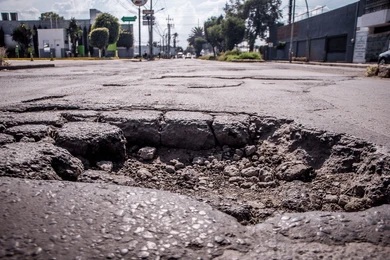New Climate change study calls for action NOW

A new study by the Intergovernmental Group of Experts on Climate Change anticipates the consequences that various regions of the planet will face once the rise in global temperature takes place.
It is the most recent scientific evaluation of the knowledge on global warming and its effects: floods, droughts, rising sea levels, heat waves, as well as changes in humidity and winds, among other consequences.
The most recent scientific knowledge on the advance of global warming was published in the report “Climate Change 2021: Physical Bases”, which highlights that many of the changes that are coming are unprecedented “in hundreds of thousands of years “and some are already occurring, such as rising sea levels.
We are talking about alterations that cannot be reversed in several centuries or millennia, warns the study prepared by the Intergovernmental Group of Experts on Climate Change (IPCC), in which 234 scientists from 66 countries and another 517 contributing authors participated.
According to the report, the goal of not exceeding the global warming level of 1.5 ° C in the coming decades, or even 2 ° C, is unrealistic, unless greenhouse gas emissions are reduced “immediately, fast and on a large scale. “
Greenhouse gas emissions from human activities were also found to be responsible for a warming of approximately 1.1 ° C from 1850 to 1900.
Scientists’ projections point to the decades, between 2030 and 2050, and envision climate changes in all regions, with increases in heat waves, longer hot seasons and shorter cold seasons, in the “best” of scenarios. , based on a global warming of 1.5 ° C. But if the planet’s temperature rises to 2 ° C, “extreme heat events would more frequently reach critical tolerance thresholds for agriculture and health.”
In addition to the rise in temperature, the regions will register different changes in humidity and dryness, winds, snow and in the oceans, which will intensify as warming increases.
Another change that is being perceived is in the hydrological cycle, with a greater intensity of rainfall and associated floods in some regions and, in contrast, stronger droughts in other areas. Rains are also expected to increase in high latitudes, while in much of the subtropics they will decrease.
Coastal areas, meanwhile, are currently facing the continuous rise in sea level, with consequences such as coastal erosion and more frequent and serious floods. The document cites: “Extreme sea level events that formerly occurred once every 100 years may be recorded on an annual basis by the end of the century. Further warming will amplify the thawing of permafrost [frozen soil], as well as the loss of seasonal snow cover, the melting of glaciers and ice sheets, and the loss of Arctic sea ice in summer. “
Many of these consequences, the report details, are clearly related to the effects of human activity and will continue to occur at least for the rest of the century.
“This report is a confirmation of reality (…) We now have a much clearer vision of the past, present and future climate, which is essential to understand where we are going, what can be done and how we can prepare”, highlights Valérie Masson-Delmotte, Co-Chair of IPCC Working Group I.
Despite the projected outlook, the manifesto says that human actions can still determine the course of the planet’s climate. Panmao Zhai, co-chair of IPCC Working Group I, explains: “If we want to stabilize the climate, it will be necessary to reduce greenhouse gas emissions in a substantial, rapid and sustained way to finally achieve net zero CO2 emissions. Limit, limiting other greenhouse gases and air pollutants, especially methane, could be beneficial for both health and the climate.






